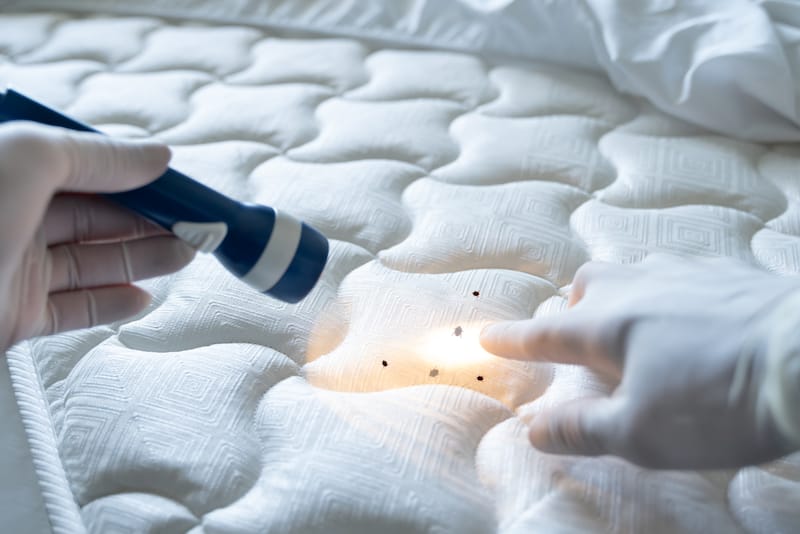In the hospitality industry, maintaining a pristine and welcoming environment is paramount. A critical aspect of this is ensuring that the premises are free from pests, which pose a threat not only to the hotel's reputation but also to the health and safety of its guests. Therefore, understanding how often should hotels inspect for pests becomes crucial for hotel management.
Pest inspections in hotels should be a part of a comprehensive maintenance strategy. Regular inspections help in identifying potential pest problems before they become major issues. But the question remains, how frequently should these inspections occur?

Understanding the Importance of Regular Pest Inspections
Regular pest inspections are vital for several reasons. Firstly, they help to maintain the hotel's reputation. In an era where reviews and ratings can make or break a business, ensuring a pest-free environment is non-negotiable. Secondly, inspections are crucial for guest safety. Some pests are carriers of diseases, and their presence in a hotel can lead to serious health concerns.
The hospitality industry is highly competitive, and a single complaint about a pest sighting can lead to a severe loss of business. Hence, proactive measures like regular inspections are essential.
Factors Determining the Frequency of Inspections
The frequency of pest inspections in hotels depends on several factors. These include the hotel's location, the season, the type of pests prevalent in the area, and the hotel's history with pest issues.
Location and Environment
Hotels in urban areas might face different pest challenges compared to those in rural areas. For example, city hotels might deal more with rodents and cockroaches, while rural hotels might have issues with insects and wildlife. It's crucial for hotels to tailor their inspection frequency based on their specific environmental challenges.
Seasonal Changes
Seasonal changes significantly affect pest activity. For instance, during warmer months, certain pests become more active, necessitating more frequent inspections. Understanding these seasonal patterns can help hotels in scheduling their inspections more effectively.
Past Pest Issues
A hotel with a history of pest infestations should conduct more frequent inspections compared to those with a clean record. Past issues can be an indicator of potential future problems if not addressed proactively.
Recommended Inspection Schedule
The general recommendation is that hotels should conduct an inspection at least on a quarterly basis. However, in high-risk areas or hotels with a history of pest issues, monthly inspections might be necessary.
Some hotels might also opt for pest control technologies to aid in their efforts. Implementing smart sensors and automated detection systems can provide continuous monitoring, reducing the need for frequent manual inspections. More details on such innovative solutions can be found in this Rentokil article.
Creating a Pest Management Plan
Besides regular inspections, hotels should also have a comprehensive pest management plan. This plan should include preventative measures, such as proper waste management and maintenance routines to eliminate potential pest habitats.
Staff training is another crucial aspect. Employees should be trained to identify signs of pest activity and report them immediately. This not only helps in early detection but also enhances the overall effectiveness of the pest management plan.
Integrating Inspections with Hotel Operations
Integrating pest inspections seamlessly within hotel operations can ensure minimal disruption to guests. Scheduling inspections during low-occupancy periods or during routine maintenance checks can be effective strategies.
Furthermore, maintaining open communication with pest control experts can provide hotels with valuable insights into emerging pest threats and new management strategies.
Conclusion
Maintaining a pest-free environment is essential for any hotel's success. Regular inspections, tailored to the hotel's specific needs and challenges, are a critical component of effective pest management. By understanding how often should hotels inspect for pests, hotel managers can ensure a safe and welcoming environment for their guests.
For more insights on keeping hotel environments pest-free, check out this comprehensive guide on Pest Scan for Hotel Management.

FAQ
How can hotels prevent pest infestations?
Hotels can prevent pest infestations by regular inspections, maintaining cleanliness, proper waste management, and training their staff to identify and report pest activity.
What are the common pests found in hotels?
Common pests include bed bugs, rodents, cockroaches, and flies. The type of pest may vary depending on the hotel's location and environment.
Why is it important to train hotel staff in pest control?
Training staff is crucial as they are often the first to notice signs of pest activity. Early detection can prevent minor issues from becoming major infestations.

